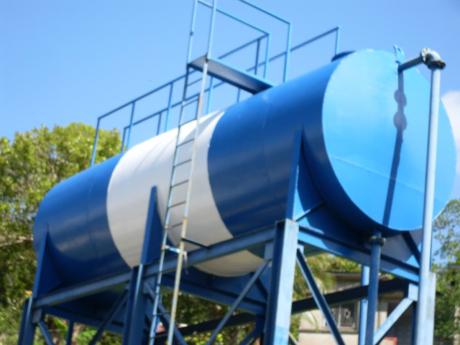Earth Today | Refreshed rainwater harvesting toolbox now available to Caribbean SIDS
AS CARIBBEAN small-island developing states (SIDS) face the bruising realities of a changing climate, the need to adapt to safeguard water security is pressing, with rainwater harvesting a go-to recommendation.
The Global Water Partnership Caribbean (GWP-C) is helping to make it easier for people to adopt the best practice, with the recent release of its redesigned Rainwater Harvesting Toolbox.
GWP-C launched the online toolkit in 2011, supporting the promotion of rainwater harvesting as not only a viable but also a cost-effective response to water scarcity.
Among other things, the updated toolkit, released on World Water Day (March 22) this year, reminds users that “household rainwater harvesting systems can be very simple as the water is collected and used at the same point, thus reducing the need for lengthy channelling and transmitting infrastructure”.
“This is particularly useful in areas with dispersed housing patterns, where it may not be cost-effective to lay pipeline to remote scattered houses,” it noted.
The resource, meanwhile, is chock-full of offerings – from technical products, such as research publications that date back to 2004, to mapping products that showcase tools that can be used to estimate, for example, rainwater capture potential of ‘roof, road, and non-built surfaces’.
It provides, too, a link into regional and national initiatives that have been undertaken to promote the sustainable use of water over time, as well as a ‘taste’ of products developed as part of the advocacy work done in the area.
This latest effort of the GWP-C comes in the wake of its release last year of a perspectives paper titled Status, Need and Role of Freshwater Storage in the Caribbean, which champions rainwater harvesting. The paper also drew attention to the need for more Caribbean SIDS to use the option for water security.
“While there are many handbooks and practical how-to guides for designing and implementing household rainwater harvesting systems, the uptake has not been what has been hoped for. Even in those jurisdictions where there are statutory requirements to install storage for rainwater, such as in The Bahamas, Barbados, etc, the actual use has been low. The issue is then not one of technology but, rather, of cost, maintenance, a lack of interest, and of incentives,” said the paper, written by Anika Cole and Dr Adrian Cashman.
The researchers also drew attention to a number of the reasons for this limited uptake. They include that water utilities have seen rainwater harvesting systems as competition. Cole and Cashman said it is time for a change, given what is at stake.
“Climate change is expected to decrease water availability from existing sources and to increase variability, while water demand is anticipated to increase in most countries. Water utilities have several response options; whilst not dismissing the role of demand management for the supply side, this means looking for additional sources,” Cole and Cashman wrote.



